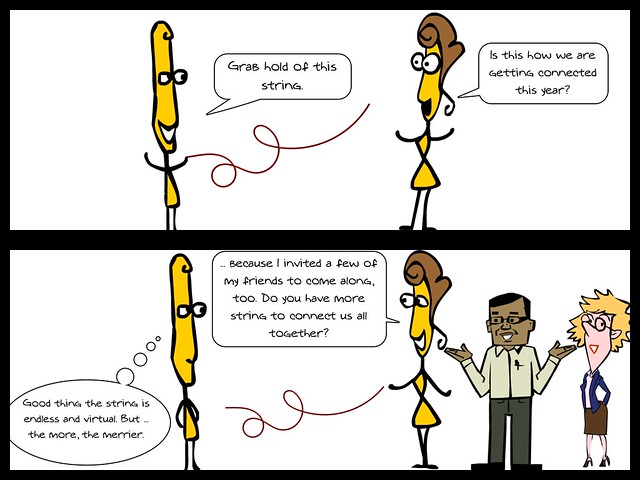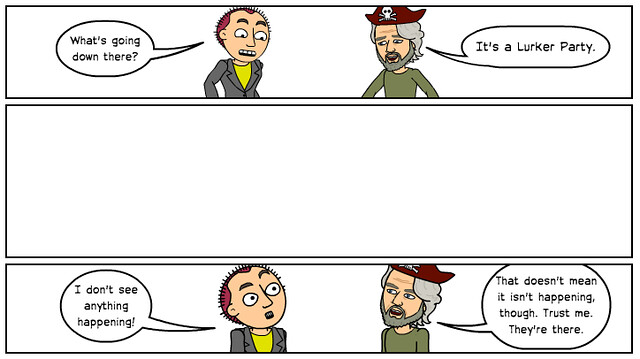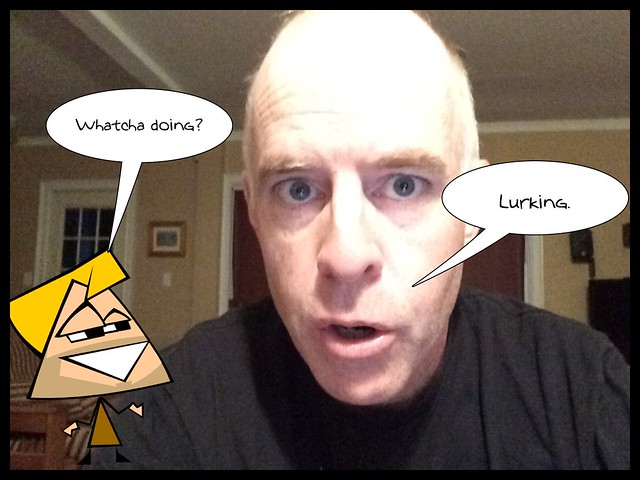Thanks to Terry for popping the first Hangout for Connected Courses into Vialogues, so that we can contribute to discussions after the hangout (with Howard Rheingold, Alan Levine and Jim Groom) has come and gone. Here. they are talking about the concept of a Domain of One’s Own, and how someone might set up their blogging and informational systems, and more importantly: why you would do it.
(This should be embedded completely here but it doesn’t seem like it worked. Go to the Vialogue directly)
We talked about this in CLMOOC, too (inspired by these three dudes), with hopes that people will push back against established platform systems that can often hem learners in, instead of opening things up. Having your own space is a step towards defining your digital identity and presence. I know I blog with Edublogs and moving to my own domain doesn’t work for me, right now. But for folks who might be thinking about teaching an open learning system, it might make sense to host your own instead of turning to a prefab network space.
What comes to my mind is as I listened to them chat, and explain some of the technical and philosophical issues with hosting your own space(s), is the issue of agency, and whether we define our digital spaces for own our needs or adapt what we want to do to the space we are in. I find I do both, and am always toggling around in that middle space. As a teacher, though, I try to teach my young students about the nature of “workarounds” and, as Howard notes, pushing the edges of the possible to accomplish your vision. Sometimes, it fails. That’s life. You just try again and re-workaround it (yeah, not a word but it works).
The key thing here is to not let publishers and other platform creators define who we are as learners and as educators. I’m not saying I have figured it out every time (for example, I am using Edmodo right now with some teachers at an urban middle school through the Western Mass Writing Project and I am not all that happy with it. But, I am trading off “low entry” for these educators for “full functionality” for what I want to see happening. And yeah, “free” plays a role, too).
Sometimes, it takes time, and incremental footsteps, to enact change. The video here helps frame that. Come be part of the discussion.
Peace (in the system),
Kevin


